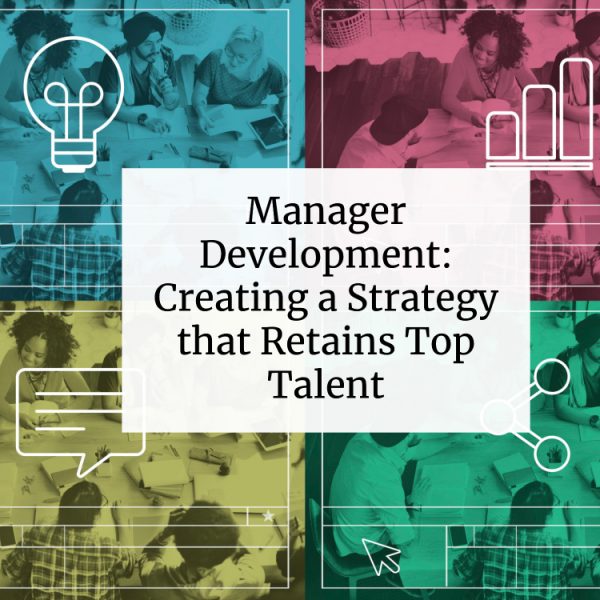Organizations need skilled managers more than ever before. As organizations become flatter and more dispersed, managers become the glue that connects strategy to implementation. They facilitate communication, collaboration, and coordination within the organization as well as with partners. At the same time, they’re responding to environmental, cultural, and technological changes while still managing their department’s work, personnel issues, and personal growth and development.
As you can see, management talent is one of the most essential assets of any organization. While it may not show on the balance sheets, manager development drastically influences the progress, growth, profits, and value of the organization. Basically, it’s a cost-effective resource that has a high profit contribution if you do it right.
Creating a Manager Development Strategy
Creating a strong management development strategy involves assessment and preparation. Accordingly, implementing a solid management development strategy involves multiple considerations, but here are a few key components:
- Skills Assessment: Assessing the managers’ current skill levels as well as analyzing and estimating the fundamental management competencies that might be required in the future.
- Individuality: Designing development programs for individual managers while providing straightforward guidance about career path opportunities.
- Manager Buy-in: Linking the program’s goals and objectives to the manager’s interests and the organization’s needs.
- Continuous Improvement: Reviewing and modifying existing management development programs.
Manager Development Program Content
Regardless of whether the manager is promoted or brought in from outside the organization, they typically require continuous training to achieve success on the job for the long run. Deficiencies in business expertise at all levels can lead to poor decision-making and communication skills. The most effective content provided in manager development programs are:
- Specific: providing detailed information helps reduce ambiguity. Even if the end result is variable, you can still include examples that help managers step through a specific process.
- Relevant: content that focuses on their specific challenges as managers and how they can benefit from acquiring the training helps gain buy-in on the time investment required.
- Actionable: training that can immediately be implemented helps knowledge retention and skill development.
- Available: online programs that allow managers to receive instant access to training on their schedule not only improves compliance, but also usage as they discover what they need when they need it.
Other Considerations
- Planning for the future: It’s important for companies to think about their current needs and it’s also crucial that they focus on the future. Organizations must consider the necessary skills and expertise they’ll need over the next ten years. But, how do they know what they’re going to need? The easy answer is by involving managers in the discussion. Including them in the vision allows them to self-identify gaps and work with HR to close them.
- Employee retention: Time and time again we see that the lack of management talent is a key reason why employees do not stay. Yet, managers are sometimes overlooked when it comes to budgeting for employee development. Management development training builds confidence, improves morale across the board and helps create innovative managers, ultimately contributing to the organization’s success.
- The ripple effect: Training managers creates a positive ripple effect in your organization because when they are developed, they see the value in developing others, and see the overall progress towards the vision of the organization. Creating a manager development strategy that retains top talent could be the difference between an organization that lasts for a few years or one that leaves a lasting legacy.

